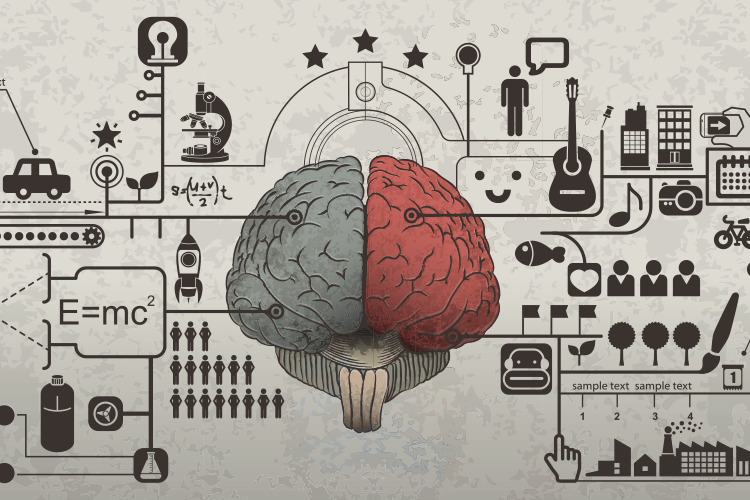Blog
Working part-time may be better for brain function
 A study released by Melbourne University earlier this year has found the more hours we work, the worse our cognition, and therefore our productivity.
A study released by Melbourne University earlier this year has found the more hours we work, the worse our cognition, and therefore our productivity.
Many of us have experienced the dumb, blank stare at the computer screen when pushing on late into the night following an early start. But whilst we think we are being productive by repeatedly committing to the long-haul, our cognitive ability may actually be suffering!
Using data gathered in Household, Income and Labour Dynamics in Australia survey, researchers measured the working hours of 2,965 male and 3,502 female participants against 3 measures for cognitive ability. These include the Backward Digit Span; the Symbol Digits Modalities; and a 25-item version of the National Adult Reading Test. All participants were 40 years old and over.1
Results indicate that for those in middle and older age, we fare far better cognitively when working up 25 hours per week, with no major difference between men and women.
Any more, and working memory, linguistic skills, information processing speed and concentration start to decline.
However, not working or using the brain intellectually at all could also result in decreased cognition.
Use it or lose it
Past research has shown working or volunteering, whether in earlier or later life can positively impact cognition, which may be due to feeling a sense of purpose,2-4 but long hours may offset any benefits.
This study highlights the importance of limiting brain overwork but ensuring some brain stimulation.
“For cognitive functioning, working far too much is worse than not working at all,” study author Professor McKenzie explains. “In the beginning work stimulates the brain cells. The stress associated with work physically and psychologically kicks in at some point and that affects the gains you get from working.”
Stress, long hours, and quality of the task at hand may each negatively impact brain health and mental wellbeing.5-7 Shift work, long-term, is thought to cause trouble for cognition too, if not managed well.8
So, it may be about striking a balance, it seems, especially post 40 years of age!
Making more time
Oh does it not sound dreamy? 25 hours a week – yes please! Yet according to recent stats, full-time working Australians put in an average more than 40 hours per week.9
Some businesses in Sweden are introducing the 6-hour working day. Workers believe the extra time not only boosts productivity and energy, there are less sick days taken.
Of course, the nature of the work will impact the impact on the brain and body in different ways, such as plugging at computers compared with constructing a fence, or having a single task focus compared with juggling multiple at once.
And whilst the reality of working less may not be an option (at least not financially for many of us!), what we may be able to take from this study is the concept of having more time for self.
With more time, we can pursue hobbies, volunteer, or have more time with loved ones – boosting happiness, and therefore wellbeing overall.
By Angela Johnson (BHSc Nut. Med.)
References:
- Kajitani, S McKenzie, C and Sakata, K 2016, ‘Use It Too Much and Lose It? The Effect of Working Hours on Cognitive Ability’, Melbourne University, Melbourne Institute Working Paper Series Working Paper No. 7/16.
- Frankamp, H Grosh, A & Hunt, L 2014 “The Effects of Volunteer Participation on People with Cognitive Impairment”, Innovative Practice Projects,Paper 49, viewed 5 August 2016, <http://commons.pacificu.edu/ipp/49>
- Marquié, JC Duarte, LR Bessières, P Dalm, C Gentil, C Ruidavets, JB 2010, ‘Higher mental stimulation at work is associated with improved cognitive functioning in both young and older workers’, Ergonomics, vol. 53, no. 11, pp. 1287–1301.
- Mazzonna, F Peracchi, F 2012 ‘Ageing, cognitive abilities and retirement’, European Economic Review, 56, no. 4, pp. 691–710.
- Cottini, E & Lucifora, C 2013, ‘Mental Health and Working Conditions in Europe’, Industrial & Labor Relations Review, 66, no. 958-988.
- McEwen, BS Sapolsky, RM 1995, ‘Stress and cognitive function’, Current Opinion in Neurobiology, vol. 5, no. 2, pp. 205-216.
- Scott, SB, Graham-Engeland, JE, Engeland, CG, Smyth, JM, Almeida, DM, Katz, MJ, Lipton, RB, Mogle, JA, Munoz, E, Ram, N, & Sliwinski, MJ 2015, ‘The Effects of Stress on Cognitive Aging, Physiology and Emotion (ESCAPE) Project’, BMC Psychiatry, vol. 15, no. 1, pp. 1-1
- Marquié, J, Tucker, P, Folkard, S, Gentil, C, & Ansiau, D 2015, ‘Chronic effects of shift work on cognition: findings from the VISAT longitudinal study’, Occupational & Environmental Medicine, vol. 72, no. 4, pp. 258-264.
- Australian Bureau of Statistics 2014, Characteristics of Employment, Australia, August 2014, viewed 5 August 2016, <http://www.abs.gov.au/AUSSTATS/abs@.nsf/Lookup/6333.0Main+Features1August%202014?OpenDocument>











